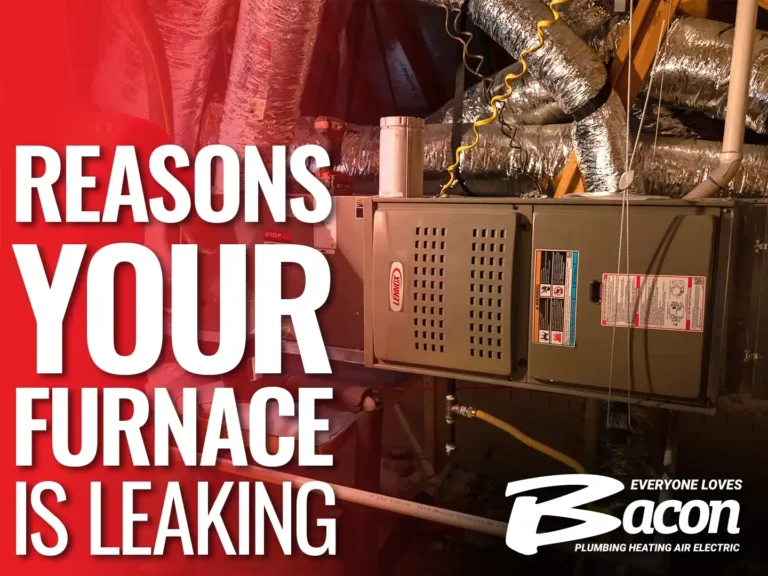We’ve all done it: put off a home repair too long, only to find that waiting to get it fixed caused even more of an issue in the long run. It’s a normal phenomenon, and it makes sense. Home repairs can be costly in time and money. In fact, research shows that 25% of homes are in need of serious repairs, and the average homeowner will wait 10 months before addressing a critical repair.
But here’s the issue: even minor issues can become major problems if left untreated. Sticking to a regular maintenance schedule and contacting a professional for repairs right away are crucial to the safety of your home. Here are some of the most common repairs that go untreated; be on the lookout and know when you need to call in an expert.
HVAC Repairs
Many common HVAC problems appear when systems aren’t maintained regularly, leading to buildup that can clog the system and block airflow. Whether it has to do with cooling or heating, it’s a good idea to keep an eye out for common concerns that may lead to bigger issues down the road.
Common AC Repairs
- Inadequate maintenance
- Electric control failure
- Sensor problems
- Drainage problems
- Ice build-up
- Blown circuit breakers and fuses
- Thermostat isn’t working
- Blowing air isn’t cold enough
Common Heater Repairs
- Thermostat isn’t working
- Dirty and clogged filters
- Flickering, weak or oddly colored pilot light
- Cracked heat exchanger
- Malfunctioning or frayed blower belt
- Frequent & over-cycling
- Unusual noises
- Worn out ball bearings
- Furnace isn’t blowing air
- Limit switch malfunction
Ignoring problems like these can cause more significant issues over time, leading to more costly repairs and earlier system replacements. It’s important to bring in an expert as soon as you notice a problem to avoid worsening problems.
Structural Repairs
A structural repair is anything that can affect the safety or security of the home if left untreated. This includes things like roof damage, wood rot, uneven floors, wall and ceiling cracks, and more. Unfortunately, many homeowners don’t realize just how serious these types of repairs can be. 42% of those who have untreated repairs in their home face structural issues, which means that there home becomes less safe by the day. Weather, age, and the simple pressure of the home on a weak point can wear down the home over time.
Pests
Termites are a significant form of structural damage that affect hundreds of thousands of homes in the U.S. According to reports from agricultural agencies and academic experts, roughly 600,000 homes are damaged every year by termites alone. These pests can eat away at the siding, foundation, and other wood structures in your home at an alarming rate. Depending on the type of termite, the type of wood in your home, and even the temperature outside, some termites can do significant damage in as little as 6 months.
It’s worth noting that termites are not the only pests to cause concern. While they may be some of the most prevalent in the US., many others can cause damage as well. Raccoons, ants, squirrels, rats, and mice can also cause structural damage by eating away at wood to the point of eventual collapse.
Damaged Roofing
Roofing is one of the most important parts of your home; it ensures your safety and protects you from the elements. But naturally, it’s exposed to the elements, so it faces much more wear and tear than the rest of your home. Especially following heavy storms, you may find that your roof has missing granules, damaged flashing, or cracked shingles.
If treated right away, these can be a very simple fix. But putting them off could lead to moisture buildup in the home, mold formation, or warped materials that are much bigger problems to solve. It’s best to contact a professional as soon as you notice roof damage.
Electrical Repairs
It’s estimated that 51,000 house fires are caused by electrical damage each year. While it’s understandable that life gets busy, electrical damage is one of those issues you don’t want to wait on. If you think you may have electrical damage on your hands, contact a professional electrician immediately; most issues are minor fixes, and it’s better to be safe than sorry when it comes to treating electrical damage.
Common electrical problems that occur include overlamping (when a lamp has a bulb with too high of a wattage), uncovered junction boxes, frayed wiring, no GFCIs, an overwired panel, outdated wiring, and ungrounded receptacles. Many of these problems cause recognizable symptoms that should signal to you that you may need electrical repair or panel replacements.
Common Electrical Damage Symptoms to Look Out For
- Circuit breaker tripping frequently
- Electrical shocks
- Hot ceiling fixtures
- Flickering lights
- Malfunctioning light switches or outlets
- Unusual odor
- Outlets sparking occasionally
- Buzzing sound
- Loose outlets
Damaged Electrical Panels
Electrical panels act as the hubs for your home’s electrical system, allowing you to control the circuits from one location. Damage to the electrical panels can be a hazard to your home, causing a power outage or even a house fire. While old age can be enough of a reason to replace an electrical panel, there are some types of damage that would require replacement altogether.
Signs that your electrical panel is damaged include circuit breakers that are frequently tripping, the panel is warm to the touch, there is an unusual odor or buzzing sound, sparks, or visible scorching. If you notice any of these things, have a professional electrician take a look as soon as possible.
Once you’ve had the electrical panel checked out and depending on the diagnosis, you may need to repair or replace the box. In the case of simple wiring issues, such as loose anchors or frayed wires, your technician can typically repair the issue. However, in some other cases, replacement is likely a safer bet.
Signs You May Need to Replace an Electrical Panel
- Panel is under 100 AMPS
- Panel is 25+ years old
- Frequent circuit breaker tripping
- Panel doesn’t use breakers (applicable to homes built before 1960)
- Panel is rusted or broken
- Burning smell
- Panel is hot to the touch
- You see sparks when plugging things in
- Lights flicker
- You’re adding additional appliances or remodeling
If you notice any of the above symptoms, you may need to replace an electrical panel for the safety of your home.
Plumbing Repairs
From morning showers to cooking dinner – our home’s plumbing system is vital to our daily lives, but we often don’t think much about it until there’s an issue. Small issues like clogged drains or faucet leaks can usually be repaired quickly, but if left untouched, they can cause significant damage to our home’s plumbing system overall.
Leaking Pipes
Leaking pipes are common in areas where we use water frequently, such as kitchens and bathrooms. Appliances that use a lot of water, such as the dishwasher, washing machine, or refrigerator, can exacerbate leaks, as well. While it’s not always the solution, it’s important to know that some leaks may require water heater repair or replacement. If you notice signs of a leak, such as a musty smell, mildew growth, or unexplained spikes in your water bill, an expert plumber can help you locate the leak and determine next steps.
Blocked Sewer Lines
Blocked sewer lines can be caused by a number of different things. Most commonly, non-water-soluble materials like feminine hygiene products, baby wipes, hair, or food can cause blockages. In cases like these, most plumbers can repair the damage without a problem. But depending on where the blockage is, trees can also cause issues. As their roots naturally look for water underground, they can sometimes find their way to sewer pipes and actually rupture the pipes in search of water. If this is the case, you may need more extensive repair work done (we recommend looking into trenchless pipe repair to minimize yard damage) or even complete pipe replacement.
Know When to Call a Professional
It’s easy to let repairs sit on the back burner. But holding off can cost you more money and more of a headache down the road. For major damage, it’s especially important to leave it to the professionals, as you could cause bigger issues by trying to treat it on your own. Give yourself peace of mind and contact an expert as soon as possible.



